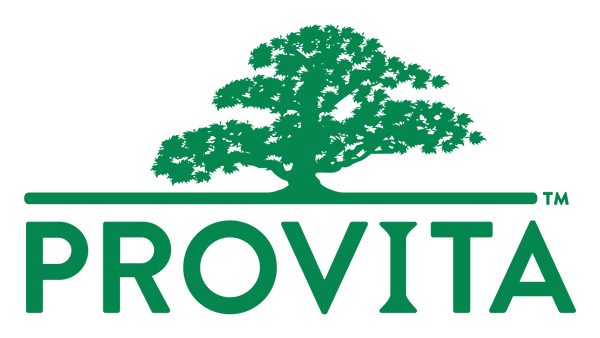Benign prostate hyperplasia (BPH) is a complex process that men have a high risk of developing at some point in their lives. As the prostate enlarges, the urethra (where urine flows through) is constricted causing reduced flow of urine. Men will experience frequent need to urinate, urgency with only a small amount of urine to pass, and urinating frequently at night. If there is any pain with urination, this may be a sign of prostatitis, which is caused by an infection.
What are contributing factors to BPH?
It has been found that lifestyle decisions can be correlated with clinically relevant BPH. China has demonstrated that populations leading a traditional Chinese lifestyle have dramatically less clinical BPH than those leading westernized lifestyles. When it comes to a western lifestyle, there is not one single lifestyle decision that has been proven to be most crucial, but the combination of high intake of animal products, refined carbohydrates, low intake of vegetables, legumes, nuts and seeds, insufficient sleep, sedentariness, pollution, overwork and stress play a role in BPH development. In one small, open clinical trial, it was found that when men switched to a high-fiber with low-animal-product diet along with regular exercise led to reductions in prostatic epithelial hyperplasia within just 2 weeks.
Along with lifestyle, hormones are another area pay attention to. Estrogens as well as xenoestrogenic chemicals may also drive BPH. As men age, testosterone levels start to decline and with a sedentary lifestyle, weight gain may occur. With weight gain, estrogen can rise; which may contribute to BPH. Higher endogenous estrogen levels has been correlated with larger prostates. The role of xenoestrogenic chemicals is also suspected. Their recent and rapid rise in the environment has led to a contributing factor with increased frequency and severity of BPH.
Is there a way to prevent BPH?
As we know that prostate enlargement occurs with age, there are lifestyle changes that can make an impact in preventing enlargement that causes clinical changes. Some of the first changes should be: eating a higher intake of phytoestrogens along with avoiding xenoestrogens as much as possible, eating more fibre, legumes, nuts and seeds and increasing exercise to at least 30min 2-3 times a week.
There are also herbs and nutrients that can help with prevention and assist medication as BPH progresses. Provita’s Prostate Pro innovative formula contains a variety of herbs and nutrients that address the symptoms of BPH along with working to reduce further growth.
Saw Palmetto has consistently demonstrated that it can help prevents BPH progression. One small trial of 189 men with mild BPH found that progression of symptoms to the point of requiring surgery was reduced by 33% in those taking saw palmetto compared to those who took no treatment at all.
Pygeum has similar effects as Saw Palmetto. Goldenseal and Olive leaf are both antimicrobials to help with any possible infection related to prostate inflammation. DIM and Indole-3-Carbonol assist with endogenous estrogen and xenoestrogenic removal. Stinging Nettle helps reduce urinary irritation. Boswellia serrata is a strong anti-inflammatory along with Graminex® G63 Flower Pollen Extract which also relaxes the bladder to help ease urination.
In combination with Prostate Pro, Provita's Serra-Plus Forte acts synergistically to help reduce inflammation as it is a combination of strong anti-inflammatories and analgesics such as Serrapeptase, Boswellin65™ and Curcumin extracts.
It is important to note that if the prostate is enlarging, and it is becoming difficult to urinate, to seek medical advice and to not delay.
REFERENCES:
- https://pubmed.ncbi.nlm.nih.gov/9594331/
- Platz EA, Kawachi I, Rimm EB, et al. Physical activity and benign prostatic hyperplasia. Arch Intern Med. 1998;158(21):2349-2356.
- Sebastiano C, Vincenzo F, Tommaso C, et al. Dietary patterns and prostatic diseases. Front Biosci (Elite Ed).2012;4:195-204.
- Barnard RJ, Koabayashi N, Aronson WJ. Effect of diet and exercise intervention on growth of prostate epithelial cells. Prostate Cancer Prostatic Dis. 2008;11(4):362-366.
- Tan MO, Karabiyik I, Uygur MC, et al. Serum concentrations of sex hormones in men with severe lower urinary tract symptoms and benign prostatic hyperplasia. Int Urol Nephrol. 2003;35(3):357-363.
- Gann PH, Hennekens CH, Longcope C, et al. A prospective study of plasma hormone levels, nonhormonal factors, and development of benign prostatic hyperplasia. Prostate. 1995;26(1):40-49.
- Djavan B, Fong YK, Chaudry A, et al. Progression delay in men with mild symptoms of bladder outlet obstruction: A comparative study of phytotherapy and watchful waiting. World J Urol. 2005;23(4):253-256.
About the Author
Dr. Taylor Bean is a Naturopathic Doctor and owner of TaylorMade Wellness in Salmon Arm, BC. She began her career working overseas In Singapore for two years, to now 6 years working in Canada, she has been able to blend Eastern and Western approaches from a clinical and cultural perspective. As a mother of two, she has a passion working with pregnant mothers achieve a healthy pregnancy and smooth labor along with working with children to help them thrive.

DISCLAIMER:
The statements on this website are informational only and shall not to be construed as medical advice to diagnose, prevent or treat any medical condition. Please consult your healthcare practitioner before taking natural supplements, especially if you have a serious health condition and you are on medication for it.







